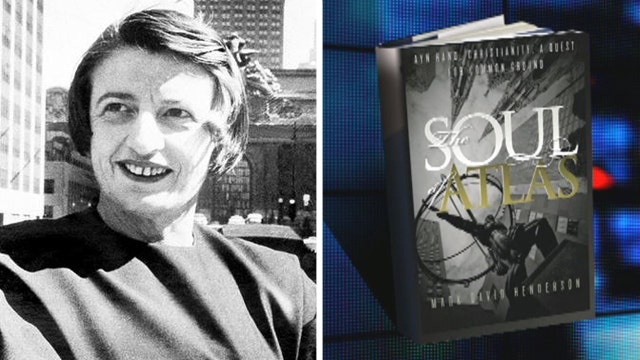Celebrated Russian-born philosopher and novelist Ayn Rand possessed a deep love and appreciation for the United States and its foundational principles.
Her incredible admiration of America bubbles enthusiastically in her own words and in the analysis of leading scholars.
"She believed what the Founding Fathers achieved was pretty close to perfection," Yaron Brook, chair of the California-based Ayn Rand Institute, told Fox News Digital.
"She also believed that the nation wasn’t living up to the promise of what the founders had actually created. But she thought they did as good a job as anybody could [in] setting down the principles of how a country should govern itself."
Rand’s personal, emotional and intellectual attachment to her adopted homeland is often clouded by her staggering ambition, including her most famous work, "Atlas Shrugged."
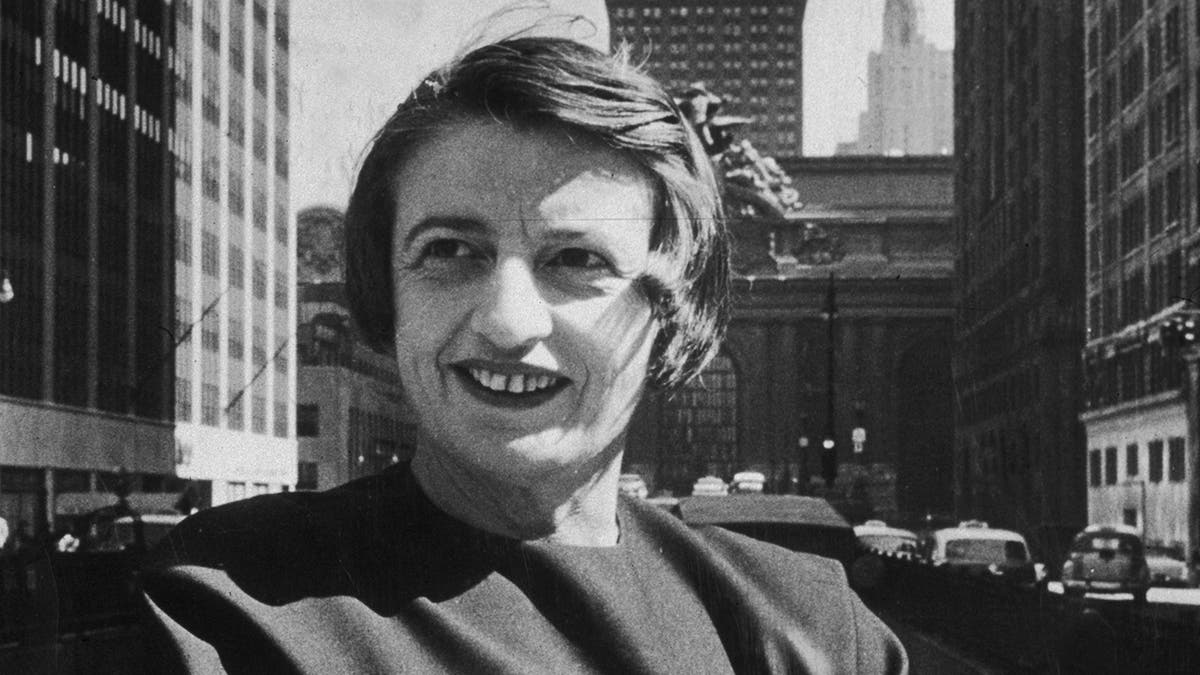
Russian-born American author and philosopher Ayn Rand smiles and stands outdoors in 1957 with her arms folded, in front of the Grand Central building, midtown Manhattan, New York City. (New York Times Co./Getty Images)
Rand’s signature 1957 novel is dubbed "a cornerstone of pro-liberty literature" by Students for Liberty.
But it chimed in at 562,000 words and 1,168 pages in its original printing — only slightly shorter than "War and Peace," the historic gold standard of lengthy novel narrative.
"My philosophy, in essence, is the concept of man as a heroic being" — Ayn Rand
Her intellectually intimidating reputation, and the debate inspired by her philosophy of objectivism — which has fallen out of favor in academic circles in recent decades — also contribute to the seeming complexity of Rand’s world view.
But the core of her belief system is quite simple: Individuals are inherently "heroic," while governments only restrict human freedom, potential and happiness.

A member of the National Guard is seen reading "Atlas Shrugged" in the Capitol Visitor Center while the House debated an article of impeachment against President Donald Trump on Wednesday, Jan. 13, 2021. (Photo By Tom Williams/CQ-Roll Call, Inc via Getty Images)
"My philosophy, in essence, is the concept of man as a heroic being," Rand wrote in the "Atlas Shrugged" appendix, "with his own happiness as the moral purpose of his life, with productive achievement as his noblest activity, and reason as his only absolute."
Here are five ways Rand displayed her love of the United States and had faith in it as the best hope for humankind.
1. She grasped and proselytized the power of the Declaration of Independence
"The Declaration of Independence," Rand said in a 1976 bicentennial lecture in Boston, "is probably the greatest document in human history, both philosophically and literarily."
NEW DEMENTIA DRUG ‘HAS GIVEN ME HOPE’: ALZHEIMER'S PATIENTS REVEAL THEIR STORIES
The author was born into an Old World monarchy and raised amid the upheaval caused by failed collectivist ideology.
So she possessed a perspective on the remarkable intellectual revolution of the Founding Fathers.
It's a perspective that's been lost to simplistic academics today who never knew world without the virtues the founders carved from the darkness of the human experience.
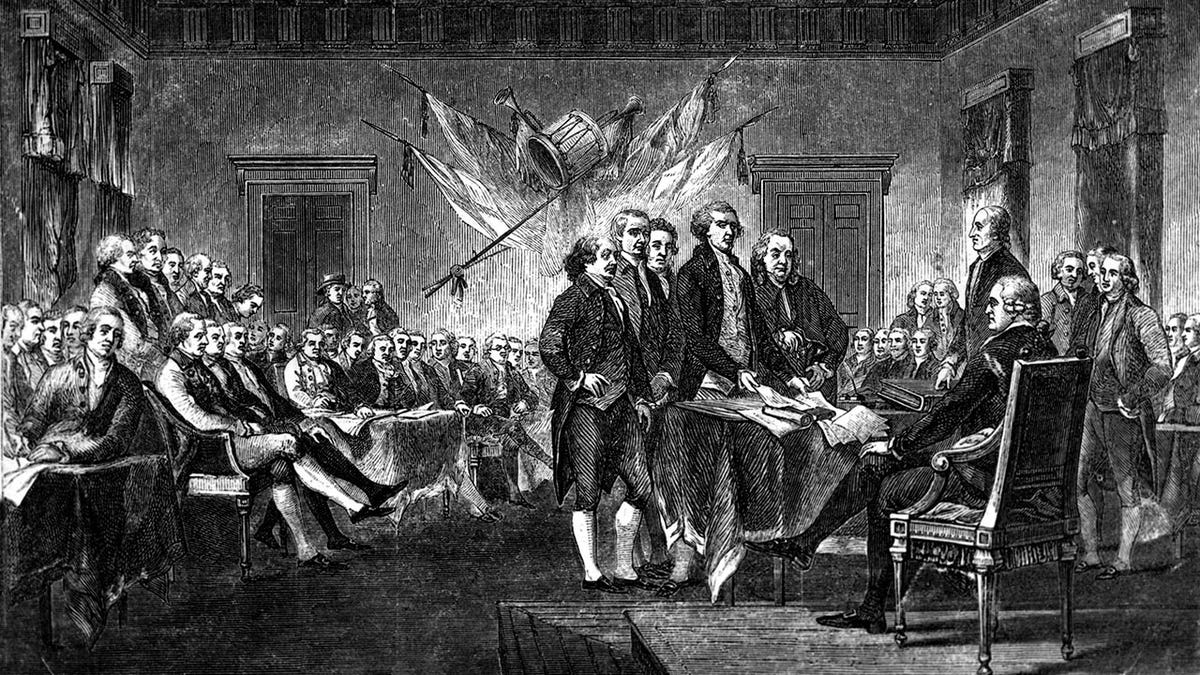
This undated engraving shows the scene on July 4, 1776, when the Declaration of Independence, drafted by Thomas Jefferson, Benjamin Franklin, John Adams, Philip Livingston and Roger Sherman, was approved by the Continental Congress in Philadelphia. (AP Photo)
The concept of individual rights was "so prodigious a feat of political thinking that few men grasp it fully. And 200 years have not been enough for other countries to understand it," she wrote.
"But this is the concept which made it possible for us to bring into reality everything of value that any of us did or will achieve or experience," she also wrote.
2. Rand fled totalitarianism overseas and prospered in America
The groundbreaking thinker was born Alisa Zinovyevna Rosenbaum in St. Petersburg, Russia, in 1905.
She was just 12 years old when the city, and the nation, exploded in Marxist revolution.
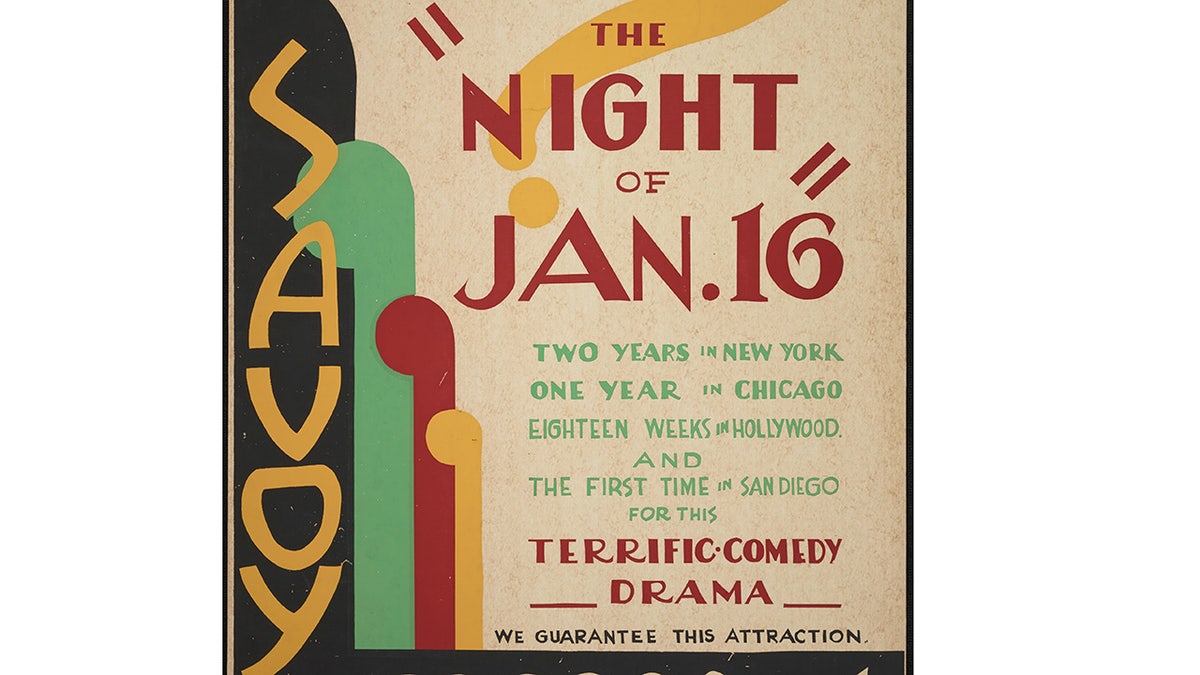
"The Night of January 16" promotional poster, San Diego, 1938. Ayn Rand wrote the play, which premiered on Broadway in 1935. (Heritage Art/Heritage Images via Getty Images)
"Independent-minded from a young age, she rejected the mysticism and collectivism of Russian tradition — and the new quasi-religion of Marxism," said Brook of the Ayn Rand Institute.
Her once-prosperous family nearly starved in the years after the Russian Revolution.
She flourished with her mind freed in the United States.
"Ayn Rand believed what the Founding Fathers achieved was pretty close to perfection." — Yaron Brook
Rand was just 21 when she arrived in New York City and by age 30 had written her first Broadway drama.
"The Night of January 16th" debuted in 1935 and "introduced her to audiences as a bold critic of social conformity," according to the Ayn Rand institute.
3. Like the Founding Fathers, Rand was an advocate of reason
The Founding Fathers supplanted the mysticism of the human experience and, building upon the known reason of the era, became the first group in history to apply reason to widespread political practice.
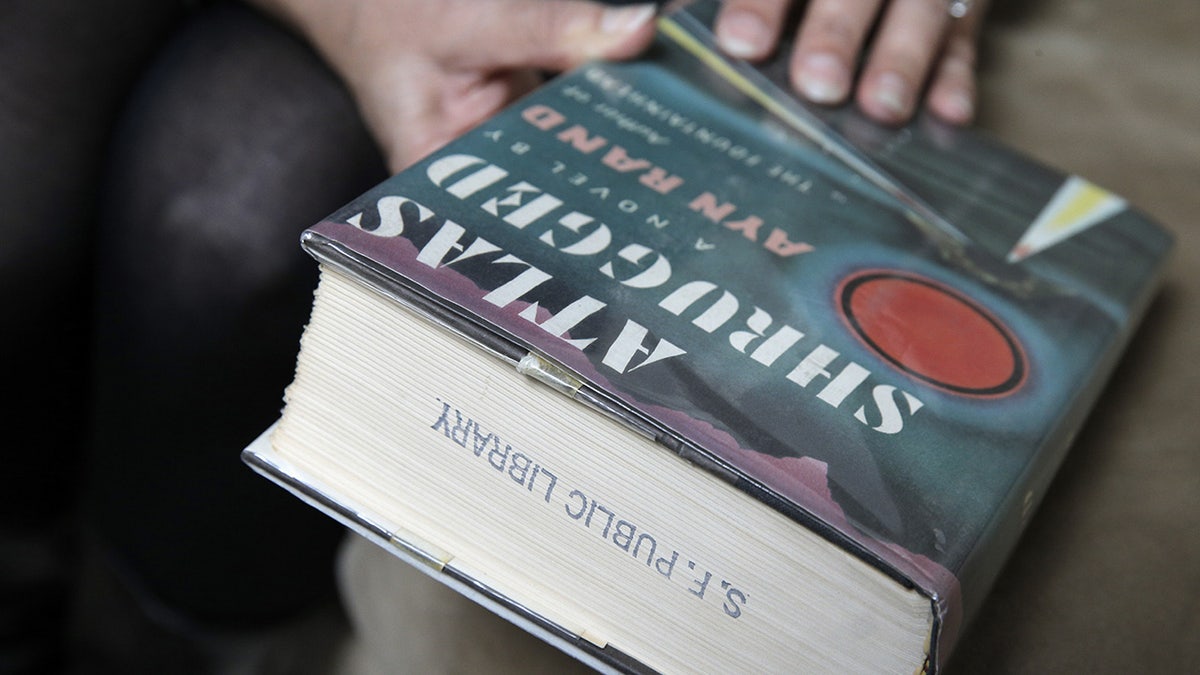
A woman holds a first edition copy of "Atlas Shrugged" by Ayn Rand borrowed in 1983 from the San Francisco Public Library on Dec. 18, 2016. (Carlos Avila Gonzalez/The San Francisco Chronicle via Getty Images)
"Reason requires freedom, self-confidence and self-esteem," Rand observed.
"It requires the right to think and to act on the guidance of one’s thinking — the right to live by one’s own independent judgment."
Rand actually cultivated her own philosophy based on reason, called objectivism.
MEET THE AMERICAN WHO WROTE ‘BEN-HUR: A TALE OF CHRIST’: UNION GENERAL LEW WALLACE
It was "a revolutionary new philosophy of reason, a guide to life, a foundation for building a truly free society," said Brook.
"It liberates the best within each of us — our reason … It is a rational philosophy consonant with the original, individualist American vision of society."
4. Rand believed individual initiative and limited government fueled the common good
"In the brilliant rocket-explosion of its youth, this country displayed to an incredulous world what greatness was possible to man, what happiness was possible on Earth," Rand wrote in "For the New Intellectual."
"The United States of America is the greatest, the noblest and, in its original founding principles, the only moral country in the history of the world." — Ayn Rand
The thinker "believed a truly free society, under a government limited to protecting individual rights, was a necessary condition for everyone to prosper," said Brook.
"The right to the pursuit of happiness means man's right to live for himself, to choose what constitutes his own, private, personal happiness and to work for its achievement," wrote Rand.
CLICK HERE TO SIGN UP FOR OUR LIFESTYLE NEWSLETTER
"Each individual is the sole and final judge in this choice. A man's happiness cannot be prescribed to him by another man or by any number of other men."
5. She spoke and wrote eloquently of American exceptionalism
America’s foundation of individualism is essential to the concept of American exceptionalism, Brook told Fox News Digital.
"There is only one fundamental right … a man’s right to his own life," Rand wrote.
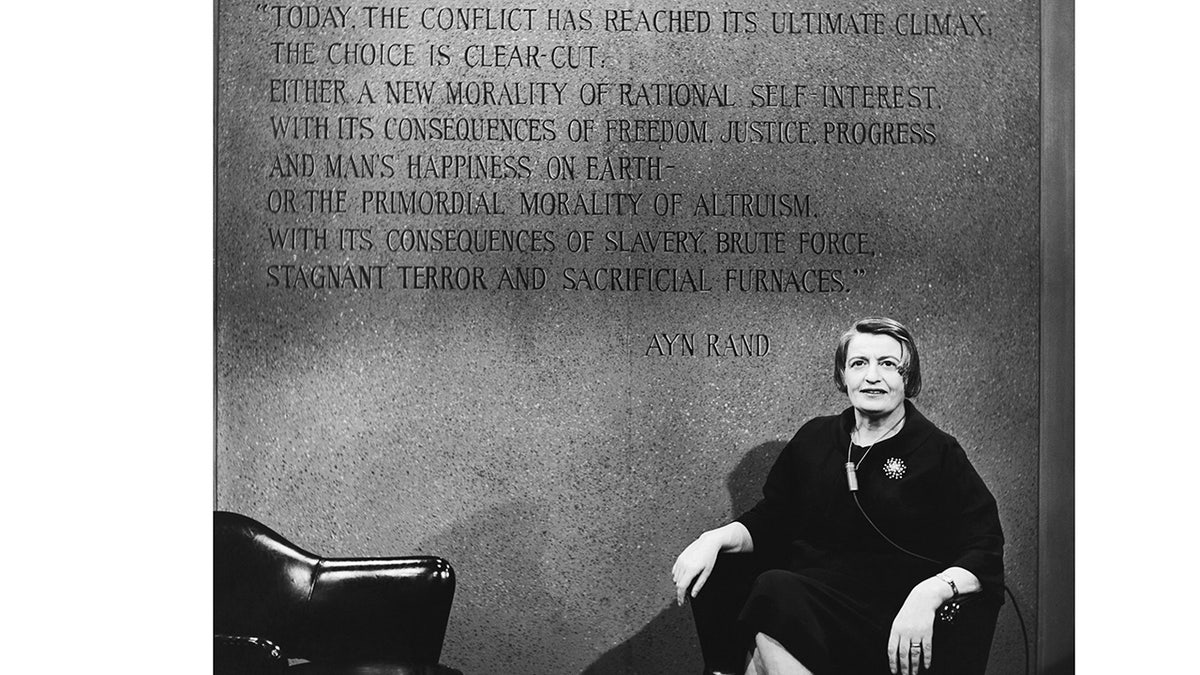
View of Russian-born American writer Ayn Rand (1905-1982) on the set of the NBC program "The Today Show," New York City, on March 23, 1961. Behind her is a quote from her 1961 book, "For the New Intellectual." (Raimondo Borea/Photo Researchers History/Getty Images)
She echoed in many ways the Founding Fathers, who were the first nation builders in history to make "life, liberty and the pursuit of happiness" the foundation of society.
She enthusiastically embraced their vision.
CLICK HERE TO GET THE FOX NEWS APP
Rand wrote powerfully of America: "I can say, not as a patriotic bromide, but with full knowledge of the necessary metaphysical, epistemological, ethical, political and esthetic roots — that the United States of America is the greatest, the noblest and, in its original founding principles, the only moral country in the history of the world."








































